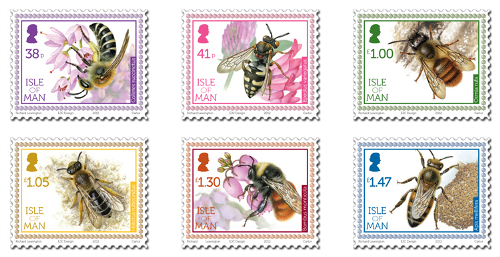Two studies published in Nature last week have raised more concerns about whether neonicotinoid pesticides adversely affect bee health. One study shows that bees are drawn to neonicotinoids, possibly because the insects catch a “buzz” from the pesticides similar to the one humans get from nicotine (2015, DOI: 10.1038/nature14414). The other study suggests that neonicotinoids affect bee behavior and growth under realistic conditions in a crop field (2015, DOI: 10.1038/nature14420).
In the first study, a research team led by neuroscientist Geraldine A. Wright of Newcastle University, in England, gave bumblebees and honeybees a choice between drinking a sugar solution laced with low doses of a neonicotinoid—either clothianidin, imidacloprid, or thiamethoxam—and a sugar solution without any pesticides. The scientists found that the bees actually preferred the pesticide-laced solutions.Unlike previous studies, which have been criticized for artificially feeding bees neonicotinoids in the lab, the second Nature study, conducted by Maj Rundlöf of Lund University, in Sweden, and colleagues, examines how neonicotinoids affect bees in agricultural fields. The team monitored colonies of honeybees and wild bees, including bumblebees, in 16 fields in southern Sweden. Half the fields contained an oilseed rape crop grown from seeds coated with clothianidin and a fungicide, and half the fields were planted with seeds coated only with fungicide. In the fields planted with clothianidin-treated seeds, the team observed a reduced density of wild bees and reduced colony growth in bumblebees specifically. However, the researchers saw no significant impact on honeybee colonies. These new reports have implications for future policy on neonicotinoids, particularly in the European Union, where three neonicotinoids are under a temporary ban while regulators review the risks of the pesticides to bees. That moratorium, which is set to expire at the end of this year, has been criticized for relying on studies conducted under unrealistic conditions.
The Rundlöf study “is the first fully field-realistic, well-replicated trial so far,” says David Goulson, a biologist at the University of Sussex, in England. “It is no longer credible to argue that agricultural use of neonicotinoids does not harm wild bees,” he notes.
Pesticide manufacturers, however, still contend that neonicotinoids are vital to controlling pests. A pesticide trade group in the England, the Crop Protection Association, rejects the Rundlöf paper, saying that “the only effect of the restriction on neonicotinoids in Europe so far has been a steady stream of reports from farmers that their crops are suffering serious losses.”
Soúrce:
C&EN, April 23, 2015
http://cen.acs.org/articles/93/i17/Evidence-Against-Neonicotinoids-Moun…)

- Login om te reageren
